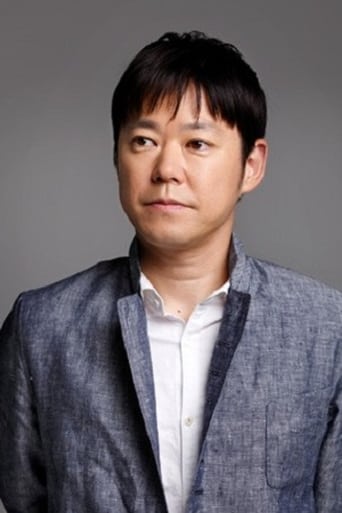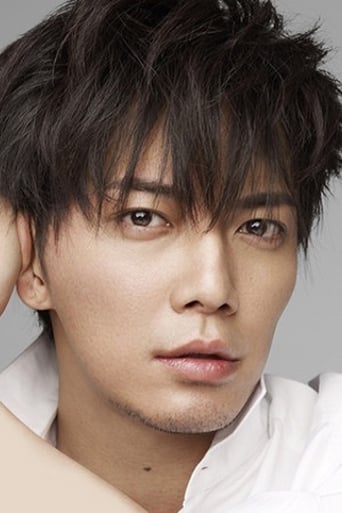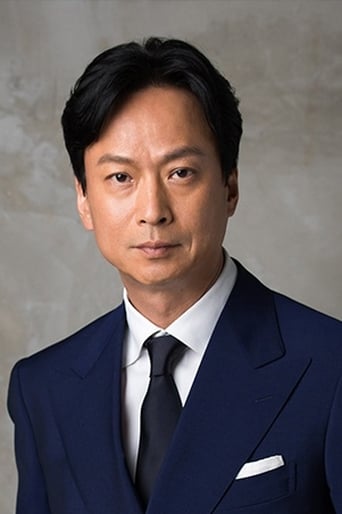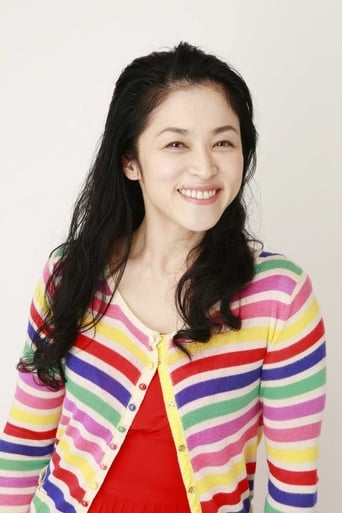edchin2006
Almost anything would be better than this. Actually, I was beginning to think "How could anything be worse than this film?" However, upon reflection, I must say the sound quality was decent, the lighting was acceptable, and focus was good. In fact, overall, the technical aspects of the film was of a reasonably high professional standard. The sets and costuming were well done to the extent that they did not detract from film. i.e. There was nothing strange that would distract the viewer from accepting that the hospital was, indeed, a hospital; nor were there any gross violations of cinematic convention. Naturally, the bomb was disarmed seconds before detonation. If it went off, how could the picture continue without a lead? And, did you ever notice the leads (good and/or bad guys) never die from the first shot - only the bit players. Back to the main premise - could this film be any worse? Yes, but if it were any worse, I cannot imagine anyone willing to continue watching. It's just bad enough to entice you into thinking, "It's gonna/gotta get better." The IMDb viewers have been very generous to give this a 4+.
jmaruyama
When Fuji TV's popular crime drama "Unfair" first debuted on Japanese TV in 2006, it was a much welcomed return to the type of hard boiled "keiji" (detective) drama that used to dominated the airwaves in the 70s. While nowhere near as long lived as such Japanese classics like "Taiyo Ni Hoerou" (Howl At The Sun), "G-Men '75", "Tokusou Saizensen" (Frontline Investigation) and the landmark "Seibu Keisatsu" (Western Police) series, "Unfair" made it's mark by introducing Japanese audiences to a decidedly different type of strong female police detective character.Based on a mystery novel series by Hata Takehiko, the series followed the exploits of top Police Inspector, Yukihira Natsumi (Shinohara Ryoko) who was a member of the Tokyo Metropolitan Police force's elite Homicide division and the daughter of a slain high ranking Police Investigator. While she had a distinguished career as a police officer and detective, her brash and sometimes unconventional approaches to police work often got her in trouble with her conservative superiors. Her troubled past had also caused her much pain and resulted in the breakup of her marriage and estrangement from her 5 year old daughter. Yet her exceptional talents, sharp mind and striking good looks made her a force to be reckoned with.The drama series lasted for about 11 episodes and was soon followed by a special "Unfair: The Special - Code Breaking - Angoukaitoku" (Unfair: The Special - Code Breaking Crytoanalysis). The series was very much in the same style and attitude as the sensational FOX series "24", and it was with much anticipation that I looked forward to this big screen movie version. Unfortunately, perhaps my expectations were too great and "Unfair: The Movie" rather disappointed with it's subdued action, unexciting tone and surprisingly manipulative storyline.The movie takes place after the events of the TV special. Yukihira's life has settled back down to normalcy and she is making some headway in improving her relationship with daughter Miho, albeit there is still some emotional distance. Thing go to hell when a failed assassination attempt is made on Yukihira's life but instead kills Yukihara's babysitter and severely injures Miho. Miho is rushed to nearby Toyosu Hospital where coincidently an influential Police Chief is also being treated in an unrelated matter. While Yukihira and her boss Saiki Jin (Eguchi Yosuke) investigate the attempt on Yukihira's life, a group of young thugs take siege of Toyosu Hospital, taking control of the facilities. They soon release all of its personnel and patients but hold the Police Police Chief for ransom. Miho is also still in the hospital, having taken refuge during the initial takeover.As is quickly becoming a tired cliché, inept Police bureaucrats including Assistant Police Director Irie (Osugi Ren) make a number of dumb mistakes trying to take charge of the situation. They send a large contingent of their best Special Response Team members (SAT - Special Attack Team) to infiltrate the hospital only to see them seemingly wiped out by the youth gang in short order. They also refuse to relinquish to the gang's demand of almost 8,000,000,000 yen in Police holdings and assets in exchange for the Police chief's life. In response the gang rather coldly executes the chief on televised video and next threatens to unleash Bubonic Plague cultures stored in the Hospital's disease control center to create a deadly pandemic in the heart of Tokyo.Yukihira, desperate to get her daughter back, decides to infiltrate the hospital on her own. With frequent partner Mikami Kaoru (Kato Masaya) in tow, the two enter the hospital to save Miho and stop the gang.They soon discover that things are not all that they seem as they find that the gang is comprised of rogue members of their own Police Force and are being led by a former SAT Commander/Police Academy Instructor, Goutou Kuniyaki (Shiina Kibei). Tired of the corruption and lack of leadership of the Police Department, he has decided to rebel against the establishment and has recruited a number of Police Acedemy recruits as well as Yukihira's former friend and computer expert Hasumi Anna (80s JPop singer/actress Hamada Mari) to join his cause. Can Yukihira and Mikai stop this army and save Tokyo? Who was behind the assassination attack on Yukihira and how does it fit in with Yukihira's past?The screenplay by TV series scribe Sato Shimako (Eko Eko Azaraku - Wizard of Darkness) borrows elements liberally from Michael Bay's "The Rock" but doesn't give us much to get excited about. The story is rife with tired genre clichés, sappy dialog and an almost too painfully contrived plot.I was particularly surprised by series director Kobayashi Yoshinori's almost anemic sense of storytelling her which was in stark contrary to the TV series. Shinohara Ryoko is definitely the big draw here as beautiful detective Yukihira and the producers know and exploit it. There is no shortage of the stunning Shinohara in wet blouse, gun in hand and pouty expression mugging for attention. The saving grace for the film however is Eguchi Yosuke. While mainly known for his likable TV "J-Dorama" roles, he plays a decidedly different character here who we can't really figure out or pin down. Is he in league with the villains or is he on Yukihira's side. His role is the most interesting aspect of the movie and I wish that had been played up more in the movie similar to what was done in "Infernal Affairs".Shiina Kibei's Goutou had the potential to be as good of a character as Ed Harris' General Hummel character in "The Rock" but wasn't given much chance to shine as was Hamada Mari's treacherous character. While I wasn't expecting something as good as other deka movies like "Abunai Deka", "Sukeban Deka" or "Odoru Daisosasen", I certainly wasn't expecting the movie to disappoint so much.




